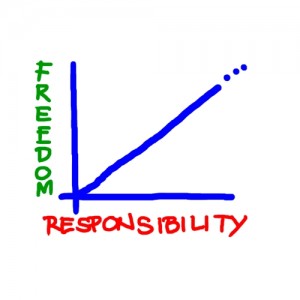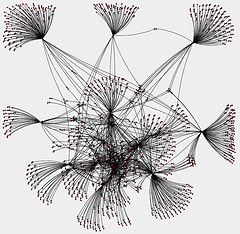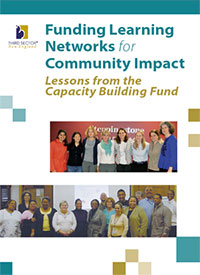Tag Archive: trust
September 10, 2014

Photo by Guy Renard 25
My friend Joel Glanzberg is a constant source of provocation and insight. The way he sees the world, through a living systems and pattern-seeking lens, is not only refreshing but unnerving in that it is evident how simultaneously critical and rare his perspective is. Joel is great at helping me and others to see beyond objects and structures to underlying patterns and processes, and how these are what animate living systems. Read More
September 3, 2014

Photo by Tela Chhe
One mantra I have for working with groups is, “If you’ve seen one group, you’ve seen one group.” Part of the welcome and challenging nature of collaboration is that in each instance we are dealing with a unique organism or constellation of human beings coming together to get something done. As complex living systems, groups of people are not prone to simple “best practices” for getting them working in a prescribed way. There certainly are some “promising practices,” including what we teach at IISC in our Facilitative Leadership for Social Change courses. Still collaboration, including the practice of group facilitation, is a heuristic undertaking – an experience-based approach to problem solving, learning, and discovery that suggests solutions which are not guaranteed to be optimal. Read More
July 23, 2014
 There is growing awareness that current organizational structures can breed irresponsibility. That is, arrangements are created where people are less able to be responsive in helpful ways. This happens, for example, when accountability is bottlenecked in hierarchies and decision-making is distanced from where the action is most timely and relevant. Read More
There is growing awareness that current organizational structures can breed irresponsibility. That is, arrangements are created where people are less able to be responsive in helpful ways. This happens, for example, when accountability is bottlenecked in hierarchies and decision-making is distanced from where the action is most timely and relevant. Read More
July 10, 2014
“In spite of current ads and slogans, the world doesn’t change one person at a time. It changes as networks of relationships form among people who discover they share a common cause and vision of what’s possible.”
-Margaret Wheatley and Deborah Frieze (2006)

For the past two years, I’ve had the fortune of partnering with Carole Martin to create and deliver a network leadership development program for regional and economic development in “the north country” (northern NH, southern Quebec, eastern VT). This opportunity was made possible by funding from the Neil and Louise Tillotson Foundation and took the form of something we called the Community Practitioners Network (CPN). Subsequently, some of the members of the first cohort have taken to calling it the “Community Placemakers Network” (more on that another time).
One of the first steps Carole and I took in creating the program was to begin with a set of principles, which, in good network fashion, evolved over time. These principles guided our design and facilitation of the program as it emerged, and we offered them to and co-evolved them with the cohort as they considered how to bring them to their own leadership in their organizations, communities, and beyond. Here is a condensed version of the lastest iteration of the principles:
- Look for what is beyond the immediate sight lines and intersections – Part of the power of networks is emergence; expect and delight in the unexpected that comes from the meeting of different minds and perspectives.
- Design for serendipity – Don’t try to control and account for all outcomes. First of all, it’s impossible. Secondly, as Andrew Goldsworthy once said, “Too much control can kill a work.”
- Periphery, not (just) center – Network action is not simply about what is happening “in the room” but what transpires “after the meeting,” not what goes on at a “steering group” level, but what happens in two-sies and three-sies that form/partner/innovate “out there.”
- Process sometimes counts as action – Creating stronger connections and building alignment among network members/participants can be significant progress.
- We move at the speed of trust – Make time and space for trust to be built.
- Contribution before credential – Contributions are what count, and can come from anyone.
- Feed the network through questions so that it has a life of its own – Using inquiry can help to unlock network potential in the pursuit of unique and context-specific answers.
Always eager to hear others and how you have put them to use . . .
June 26, 2014

Picking up on the spirit of yesterday’s post about asking “beautiful questions” and inspired by a staff challenge to articulate lines of inquiry stemming from IISC’s core lenses, I offer this post. It distills some of the underlying questions that adopting a “network lens” inspires for social change work. Please add, adjust, edit, and rift!
- How does your organization/network/change initiative strive to add value to (rather than duplicate) existing efforts? What do you do best, and how might you then connect to the rest?
- What are you doing to support and strengthen connections and alignment within and beyond your organization/network/change initiative?
Read More
March 26, 2014

Over the last few weeks I have fielded a number of calls from people who are interested in figuring out how to develop different kinds of networks. I’m always eager to have these conversations, precisely because there is no single right answer, and it really comes down to a process of discovery and experimentation based on the unique nature of the network and system in question. That said, I do like to ask people the question, “What are you doing to feed your network?” Read More
March 19, 2014

A few different experiences last week reinforced my conviction that storytelling can constitute significant “action” and advancement, including work done in networks for (and as) change. The first was during a session that I co-delivered on behalf of IISC with the Graustein Memorial Fund and The Color of Words, about our work with an early childhood system change effort in Connecticut called Right From the Start. During the conference session we emphasized that one of the biggest leverage points for system change is at the level of narrative and belief systems.
Surfacing the dominant implicit and explicit stories about what is and should be, analyzing the degree to which they align with our values and intentions, and countering/reframing them if and as necessary has been part of the work of Right From the Start (RFTS). Read More
January 2, 2014

For those who read this blog on a somewhat regular basis, you know that we at IISC find and experience great promise in embracing network approaches to (and as) social change. So what happens when we truly see ourselves as and in networks; that is, appreciating how we are inextricably embodied through and embedded in interconnected flows of energy, material goods, ideas, intentions, etc.?
Ten thoughts, in no particular order, nor meant to be exhaustive: Read More
December 18, 2013

Adam Grant is a professor at the Wharton School of Business whose research focuses on “motivation, prosocial giving and helping behaviors, initiative and proactivity.” His work and writing, including his book Give and Take: A Revolutionary Approach to Success, seem to have something to offer those interested in and engaged in developing networks for social change, as much of it points to data showing that organizations of all kinds benefit from fostering cultures of giving. Read More
December 9, 2013

Even before I read in the Boston Globe that trust is at an all-time low in the U.S., I was planning to write about trust. Our colleagues at Interaction Associates have been tracking the connection between leadership, trust and business performance for years. Their 2013 Trust Report reinforces earlier findings that higher levels of collaboration, trust within a company are correlated with higher performance.
Read More
November 7, 2013

Our friends at Third Sector New England (TSNE) have released an informative report about learning networks. From 2004 to 2012, TSNE and clusters of nonprofit organizations joined in a grant program designed to further social change through building relationships and sharing insights that enabled them to better work together to achieve common goals. The resource, entitled “Funding Learning Networks for Community Impact,” includes interesting explorations of the stages in the development of learning networks and the roles and functions that are key success drivers for nonprofit networks. There are also wonderful and resonant quotes throughout from participants of the Capacity Building Fund (CBF) about the power of and key contributors to effective networks, and I wanted to share a dozen that really jumped out, while strongly suggesting you consult the entire report: Read More
October 16, 2013
“Creating a culture of trust in a network can have a big payoff. Why is this so? First, when trust is well-developed in a network, people are willing to get involved in high-risk projects where their reputation and resources are at stake. These kinds of projects usually have a lot of impact. Next, high levels of trust usually make decision making easier and less time consuming. Finally, a culture of trust enables people to accept and work with people who are quite different from them, which increases the number of people working on network activities.”
– June Holley, Network Weaver Handbook

|Photo by Mike Baird|http://www.flickr.com/photos/72825507@N00/6827018401/in/photolist-bphfHP-ayA7wy-bKZzec-e4iaNi-aaixFs-bKZArr-e58faj-e52zee-e58ah1-e5838j-e586eo-e58cR5-e584Hq-8Wcf9Q-csNfzU-dftPtq-dZTbw9-bWm4ku-d6vnvU-d6vg8U-awDsBx-dz9vRu-7CW4pj-acYjbQ-agyEHk-9XrqN1-9XouvF-9XowsD-9XrpRj-9XrorW-d6vBWJ-d6vpE5-d6vFUQ-d6voKN-d6vJaN-d6vuLJ-d6vRoQ-d6vUZW-d6vxbE-d6vDLf-d6vSBq-d6vvPL-d6vWoA-d6vXLJ-d6vybf-d6vqN1-d6vQrY-d6vGTA-d6vma9-d6vzeb-d6vKqG|
The importance and power of trust in networks for social change cannot be overstated. Time and again, and despite what might show up as initial resistance, being intentional about getting to know one another beyond titles, official positions, and transactional exchanges reaps tremendous benefit, for all the reasons June Holley mentions above and more. Taking time and making space to build trust helps people to do the important work of social change and is in many cases an embodiment of the change we are trying to make in the world – when we expand our circles of compassion and inclusion; when we create new patterns of opportunity, exchange and resource flows; when we see and validate previously unrecognized or undervalued assets.
Read More



 There is growing awareness that current organizational structures can breed irresponsibility. That is, arrangements are created where people are less able to be responsive in helpful ways. This happens, for example, when accountability is bottlenecked in hierarchies and decision-making is distanced from where the action is most timely and relevant.
There is growing awareness that current organizational structures can breed irresponsibility. That is, arrangements are created where people are less able to be responsive in helpful ways. This happens, for example, when accountability is bottlenecked in hierarchies and decision-making is distanced from where the action is most timely and relevant. 







